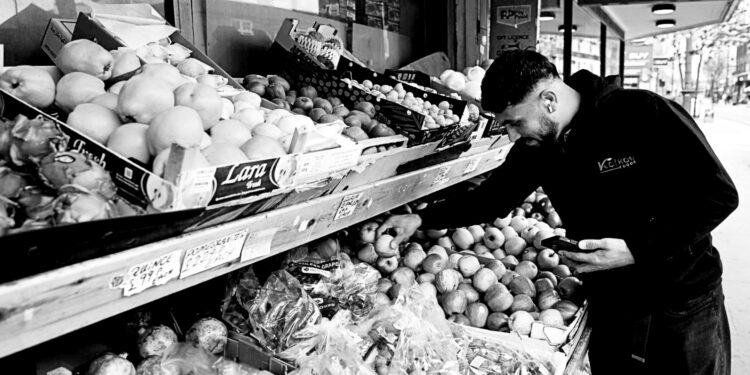Food inflation accelerated to a 45-year high last month but the pace of price rises should ease as the year progresses, shoppers have been told.
The Office for National Statistics (ONS) said the cost of food and drink rose by an average of 19.2 per cent in the year to March, the highest level since the late 1970s. Inflation in the wider economy was 10.1 per cent, which was higher than expected and increases the likelihood that the Bank of England will raise interest rates again next month. The base rate is currently 4.25 per cent.
The ONS said the average cost of cheddar cheese had risen by 49 per cent over the past year while milk was 40 per cent more expensive and sugar was 32 per cent dearer. The cost of sliced white bread has gone up by 21 per cent.
The price rises were recorded despite a fall in wholesale costs, which the ONS said was “yet to be reflected” in shops. The Food and Agriculture Organisation, a UN agency, says global commodity prices are more than 20 per cent down from their peak last year.
UK on the right track to bring down inflation, says Hunt
The British Retail Consortium, which represents the supermarkets, admitted that “food production costs peaked in October 2022” but said there was a three to nine-month lag before price falls were reflected in shops. The lag is in part explained by the long-term contracts stores use with producers.
Over the past year, Britain has also been hit by the falling value of the pound, labour shortages and the lingering effects of Brexit.
Helen Dickinson, the chief executive of the British Retail Consortium, said she expected “wider inflation will continue to ease” as the UK enters its growing season in the coming months.
In the past week, Tesco, Sainsbury’s, Lidl and Aldi have cut the price of milk.
Source: The Times


Recent Comments